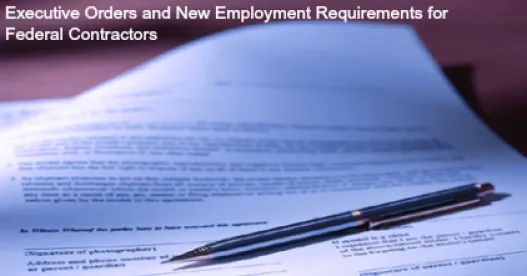Contract drafting is one of those subjects that just doesn’t get the attention it deserves. Many clients seem to view drafting as a dark art learned in the basements of law schools. Worse than that, even many lawyers view it the same way.
We have all had to plod through long, boring contracts with page-long sentences that contain ideas separated by what feels like millions of commas. No wonder many people think the best contracts are the ones that stay in a drawer.
But the contracts in complex sourcing deals should play an operational role and not just be relegated to a forgotten drawer. Many times, when we get involved in disputes, we find that a major contributor to that dispute was that each party ignored the contract they worked so hard to create and just behaved the way they did in their respective prior deals. What a shame.
Contracts for complex sourcing deals are problematically big and often written in a style that doesn’t speak to the people who should be reading them. The language may be great if the reader is a judge, but there is a very small probability that a judge will ever see the contract. So, the challenge is to write a contract that can work for a judge but that primarily works for a business user.
Over the years, we have seen some attempts to fix the problematic aspects of complex sourcing contracts, but such attempts often make problems worse. Plain language contracts seem appealing but tend to be imprecise and are often used to mask pretty egregious terms. Using folksy words to tell someone you can terminate them at will without remedy and that they have no recourse doesn’t make it any better.
The push for “modular” contracts is another way to make sourcing contracts more palatable. Again, this sounds good in theory, but for complex deals, you can easily find yourself with tens, if not hundreds, of places to look to find a holistic picture of certain issues. So, it may be an elegant way to manage drafting but, unless very well executed, it can make for some unwieldy and obtuse reading.
Then there’s the whole “cut and paste, just drop it in, automate it, or bring in really low-cost resources because it’s just drafting” culture. This is a great way to draft a contract that really does belong in a drawer. Actually, that’s not completely fair. In a former post, we discussed the difference between complex and noncomplex sourcing. The “cut and paste” method may work in some cases for noncomplex deals.
But complex sourcing requires a contract that reflects a complex relationship. And that requires skillful, thoughtful, and strategic use of a contract specifically tailored for that purpose. This doesn’t mean that there is no use for forms or precedent. But these are tools that make the process more efficient and economical and are not a substitute for experience.
For complex sourcing to work well, the contract needs to be reflective of a good deal, and the contracting process, when handled well, can help create that deal. After execution, the contract can help guide the parties throughout the life of the engagement by providing direction that was agreed to at a table when issues were evaluated and discussed and not formed in the heat of battle. Later, the contract can act as an anchor against which change can be evaluated.
But for any of this to happen, the business users have to want to read it!
So, when drafting or revising a contract, readability should play an important role. Because these deals rarely litigate, writing in a way that avoids conflict is especially important to get the benefits of the bargain.
A few of our favorite tips for drafting a readable contract include the following:
-
If you can use one word instead of many, do so. Would you rather read “if” or “in the event that”?
-
Avoid passive voice if possible. Passive voice may lead to confusion and frustration—people just don’t talk that way.
-
If you sense your inner voice changing tone or suddenly taking on an overly pompous accent, you may need to redraft the sentence you’re writing.
Drafting should be interesting and, in many ways, creative. But when drafting a contract or reviewing an already drafted contract, try to keep in mind that someone else may actually need to read it someday.




 />i
/>i
